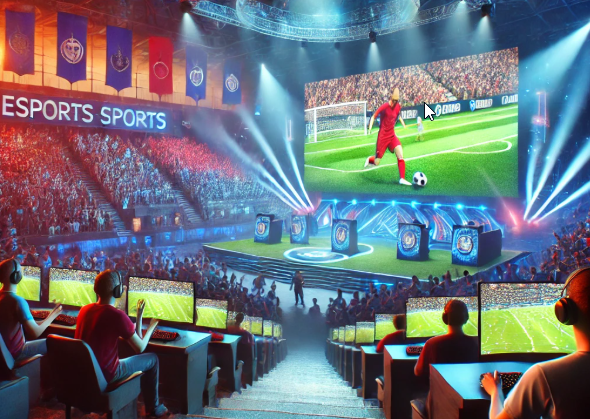
In the digital age, the lines between traditional sports events and online gaming are increasingly blurred, with each sector influencing the other in profound ways. Major sports events, particularly large tournaments, are no longer just spectacles of physical prowess but also significant drivers of trends and behaviors in the online gaming world. This article explores how these sports events impact online gaming, from increasing viewership to influencing game development.
Online gaming trends spurred by sports tournaments
Major sports events like the FIFA World Cup or the Olympics captivate millions of viewers worldwide. These events create communal viewing experiences that have traditionally revolved around television. However, with the advent of live streaming and online platforms, there’s a significant shift towards digital consumption. Platforms like Twitch and YouTube not only offer live streams of these events but also host numerous related content pieces, including analysis, fan reactions, and gaming sessions mimicking the sports being played.
The impact on online gaming is multifaceted. Firstly, there’s a surge in popularity for sports-related video games during and after major tournaments. For example, during football championships, games like FIFA see increased player counts and engagement levels. Developers often release updates or special tournament-related content to capitalize on the heightened interest, further driving engagement. Additionally, online betting platforms like ninewinlogin.com offer unique opportunities for fans to engage with these sports through virtual and interactive environments, enhancing the immersive experience of the tournaments.
Additionally, the esports industry, which parallels traditional sports in structure, also sees a ripple effect. Major sports tournaments can increase interest in esports as they highlight competitive play, strategy, and teamwork, elements common to both arenas. This crossover interest can boost viewership numbers for esports events, particularly in genres that mirror traditional sports, such as sports simulations or strategy games.
Technological advancements and game development
The influence of major sports events extends into the development and innovation within the online gaming industry. High-profile sports events often showcase cutting-edge technology, such as augmented reality (AR) or advanced analytics, which set trends that the gaming industry follows. For instance, the use of AR to enhance broadcasts of sports events can inspire game developers to integrate similar technology into their titles, offering a more immersive experience to players.
Moreover, the infrastructure improvements driven by big sports events, such as enhanced internet connectivity and broadcasting technology, directly benefit online gaming. These advancements make online games more accessible and improve the quality of live-streaming experiences, crucial for both players and viewers.
The competitive spirit of sports also finds its way into online gaming through the increased popularity of multiplayer and competitive game modes. Developers are keen on capturing the intense rivalry and drama of sports tournaments in their game mechanics, which can lead to innovations in gameplay and an emphasis on online tournaments and leaderboards.
Future outlook and potential impacts
As the relationship between traditional sports events and online gaming continues to evolve, the mutual influences are expected to grow deeper. With advancements in technology and the increasing acceptance of esports as a legitimate form of competition, future sports events could integrate even more closely with online gaming. This could include hybrid events that feature both physical and virtual competitions, expanding the audience and participant base for both sectors.
The ongoing collaboration between these two domains is poised to drive further innovation, audience expansion, and economic growth, marking an exciting future for fans and players alike. As we continue to witness these developments, the potential for new forms of entertainment and engagement seems boundless, promising a new era where physical and digital sporting events coexist and enhance each other’s appeal and impact.
